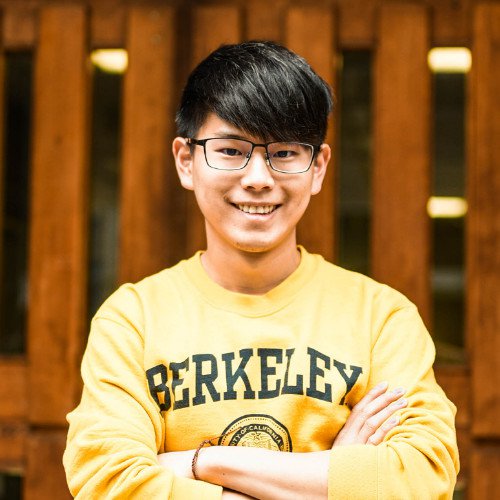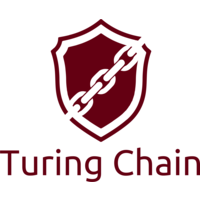Jeff Hu, MEng ’20, Turing Chain
Upon meeting at a blockchain conference in San Francisco, Taiwanese entrepreneur Yao-Chieh (Jeff) Hu so impressed several Berkeley thought leaders in attendance that they invited him to become a research scholar in the UC Berkeley Blockchain Lab. Currently enrolled in the MEng program at Cal, Jeff shares what it’s like to be working on his third successful startup, Turing Chain.

What will you carry from your Berkeley experience to your work in innovation/entrepreneurship?
UC Berkeley contributed significantly to my current startup, Turing Chain, even in terms of the ideation. When I was applying for UC Berkeley’s MEng program in December of 2017, I realized something. Since I lived in Taiwan and graduated from HKUST in Hong Kong, the friction of getting my diploma verified by graduate schools in the United States was unexpectedly challenging. I spent 6+ weeks and over $150 requesting original copies from HKUST, sending them over to a third-party verification service, and waiting for all the international contacts and verifications to come to an end. That experience motivated me to work on TuringCerts to ease the frustration for millions of international students every year. We have recently confirmed a partnership with the UC Berkeley MEng FinTech track to adopt our blockchain-based certification system.
What advice would you offer students just beginning their careers in the startup world, either as founders or as early team members?
I once read a quote from [serial entrepreneur] Justin Kan that said, “First-time founders are obsessed with product. Second-time founders are obsessed with distribution.” As a serial entrepreneur myself with two unsuccessful businesses in travel tech and gifting e-commerce, I attributed our failures to lacking the right channels where we could deliver our products to the hands of the customers.
This time while building TuringCerts, a SaaS product of blockchain-based resumes and certificates for universities and recruiters, my co-founder Ting-Ting Lee and I were determined to find ready-to-use distribution channels before we even started programming lines. We are grateful that we can leverage our existing network in academia mostly across UC Berkeley, HKUST, and several universities in Taiwan to validate a solid market need of cost-effective resume/diploma verification along with a group of established institutions who expressed strong interest in serving as the pioneer adopters for blockchain-based certifications.
The entire process of executing a startup began to make more sense to us. We were presented with settled channels through which we can validate market needs and distribute products when ready. The channels also make sure that we are able to get first-handed feedback to iterate our developments quickly.
What’s the hardest thing about your work in a growing company? What keeps you up at night?

The hardest thing is not being dissuaded by rejections. There will be a ton of reasonable and unreasonable refusals on the journey, yet founders should not take it to the heart but the brain. To me, a rejection can mean that either the prospect is not the right customer segment, or the conversation requires additional persuasive factors, or many other reasons. But the rejections never negate your potential to do great things for the world as an entrepreneur.
What is it like to run a business while in school?
A large population would argue that schoolwork such as exams and assignments might distract you from devoting all your efforts to your company. I experienced it the other way. At school, you are well connected with a network of professionals in academia that you can easily collaborate with or ask to endorse your business. In our case, numerous prestigious professors in the US, Hong Kong, and Taiwan are open to the new technology of blockchain-based certification and are willing to adopt it for their departments and courses. That bootstrapped our scales to the next level really fast.
Do you think it is better for first-time entrepreneurs to join a startup, or to start your own company? How do you evaluate your employment opportunities?
Upon graduation from HKUST, I received a fulltime offer from a multinational top financial institution. I based my career decision on what I expect myself to be after a decade, at the age of thirty-something. Compared to a technical manager in a large corporation, I preferred to be someone with stories about ups and downs, challenging situations, exciting conflicts, and an unforgettable life journey. As I once said in an interview, the only thing we must do in life is dying, not the rest of the mundane and tedious work that society expects you to take on. Personally, I love risks, uncertainty, and dangers; and doing a startup is one of the best ways to go after those.
As an entrepreneur, you’re told to push through barriers and face down rejection. How do you know when it’s time to pivot or sunset a project you’re working on?
It is never easy to give up when you are a true entrepreneur. As a startup founder, we might have already come across thousands of rejections that beat us up to be analgesia. We know that pain results in learning, but how do we know when is the right time to stop trying an idea?
I don’t think there is a product that can’t be sold. However, trying out the right business model that fits the market so perfectly can make people knock on your door every day. For TuringCerts, we do a lot of pivoting based on market responses and adjust our strategy accordingly. We might sunset the project if opportunity cost was extremely and comparatively higher, or pivot the project subtly every time we spot a stream of unexpected responses from the market.
What’s the most exciting opportunity at this stage?
There is a growing population seeking employment via their professional resumes on LinkedIn and similar services. The exciting challenge presented is that people can basically make up anything on LinkedIn and slip through the screening processes. Employment history and education history are easy to forge, but very hard to verify. The fraudulent employee took a toll on 7% of the revenue of the company as average according to SheerID. And over 500,000 Americans falsely claim to hold educational degrees, according to Prof. Creola Johnson at Ohio State University. This negative trend creates costly friction for traditional recruitment processes and harms universities’ reputations.
Aiming for a world with zero professional fraud and with cost-effective recruitment processes, we are building TuringCerts with a vision for all students, schools, and businesses.
What resource/s would be most valuable to you to help you attain your next milestone?
We are passionately seeking collaborations and partnerships with industries that require accuracy and truthfulness of their endorsement records, who especially have a need for fast and handy verification. The most valuable resource would be acknowledgment from universities that enable us to launch a mass adoption across the globe to thoroughly build this “lifelong achievement history” into everyone’s daily life.
Lastly: You’ve chosen to make the Berkeley Founders’ Pledge. What inspired you to do that?
I was very fortunate to have this chance to start a company at UC Berkeley and do great things for the community. It is always my motivation that one day, when ready, I will express my appreciation to the campus that raised me up to the level of helping the next generation of students with an even brighter and easier career path. UC Berkeley has built TuringCerts’ future, and TuringCerts wishes to help build UC Berkeley’s.
Interested in joining Jeff in his commitment to Cal? Make the Berkeley Founders Pledge, like he did, and have an impact from Day One of your latest venture.